- Details
- Written by Technion Spokesperson's Office and Rambam Spokesperson's Office
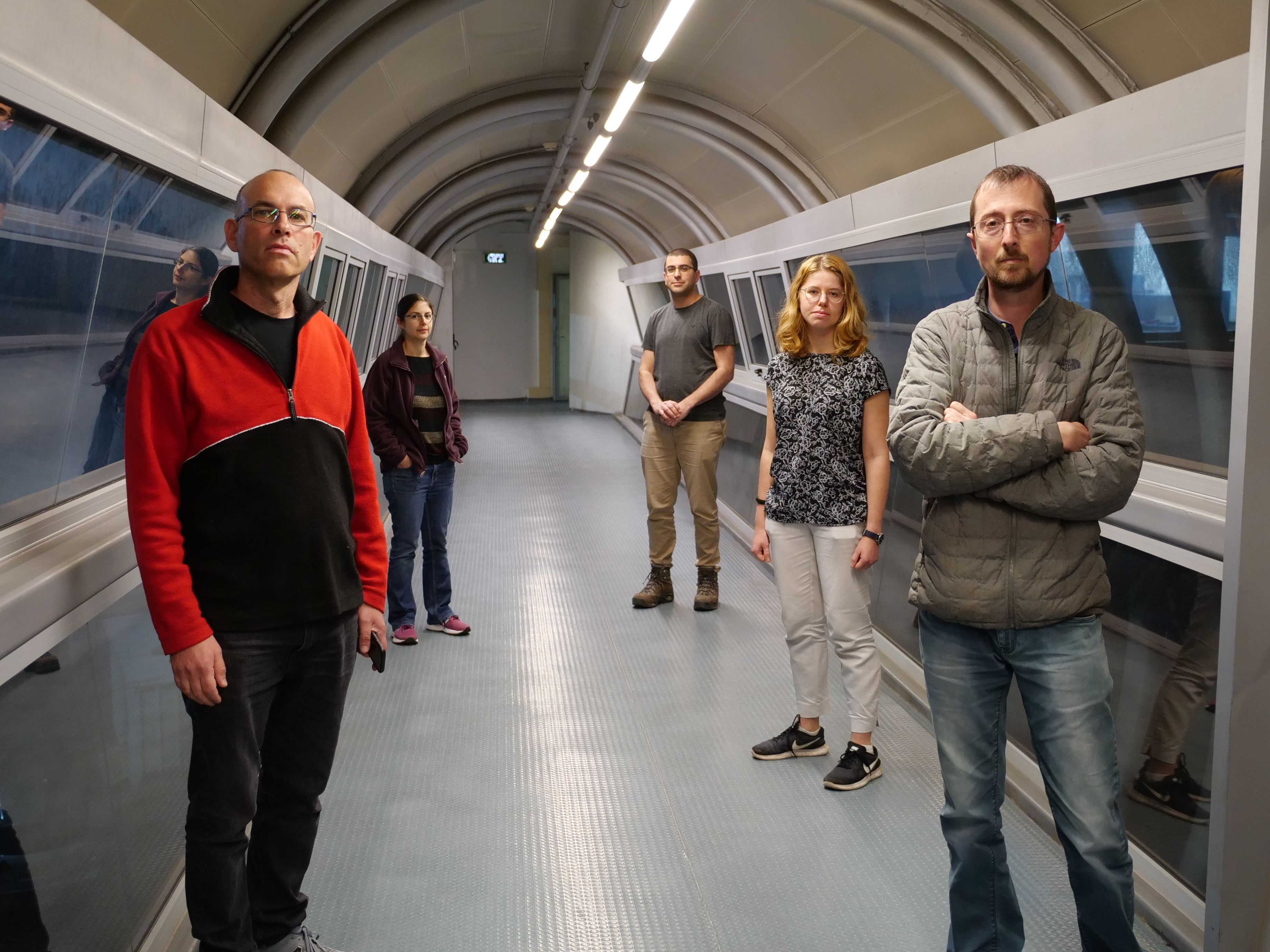
Pooling Method for Accelerated Testing of COVID-19
Technion and Rambam Health Care Campus scientists present a novel method for testing more than 60 patients simultaneously
Researchers at Technion - Israel Institute of Technology and Rambam Health Care Campus have successfully tested a method that will dramatically increase the current COVID-19 testing capacity using existing available resources. This method, known as pooling, enables simultaneous testing of dozens of samples. Its implementation has the potential to greatly accelerate the rate of testing and detection of COVID-19 infected patients in the population. The trial was completed in a matter of days thanks to the support of the Ministry of Health and the close collaboration between Technion and Rambam.
Testing for COVID-19 is currently being conducted in Israel with the focus on people with specific symptoms. The current rate of testing - about 1,200 a day – does not allow for monitoring of asymptomatic carriers in the population, which is vital to curb the epidemic.
COVID-19 is diagnosed with PCR testing, which is common for virus monitoring. This test examines the presence of a unique genetic sequence of viruses in a sample taken from the patient. The test takes several hours thus generating a bottleneck in identifying COVID-19 infected people in Israel and around the world. According to Dr. Yuval Gefen, director of the Rambam Clinical Microbiology Laboratory, “Today, we receive approximately 200 COVID-19 test samples a day, and each sample undergoes individual examination. According to the new pooling approach we have currently tested, molecular testing can be performed on a "combined sample," taken from 32 or 64 patients. This way we can significantly accelerate the testing rate. Only in those rare cases, where the joint sample is found to be positive, will we conduct an individual test for each of the specific samples.”
According to Professor Roy Kishony, head of the research group in the Faculty of Biology at Technion, “This is not a scientific breakthrough, but a demonstration of the effectivity of using the existing method and even the existing equipment to significantly increase the volume of samples tested per day. This is done by pooling multiple samples in a single test tube. Even when we conducted a joint examination of 64 samples in which only one was a positive carrier, the system identified that there was a positive sample. Although there are some logistical challenges in implementing the method, we expect that it will greatly increase the volume of samples tested per day so that we can identify the asymptomatic carriers. This approach should reduce the chance of infection and flatten the infection curve.”
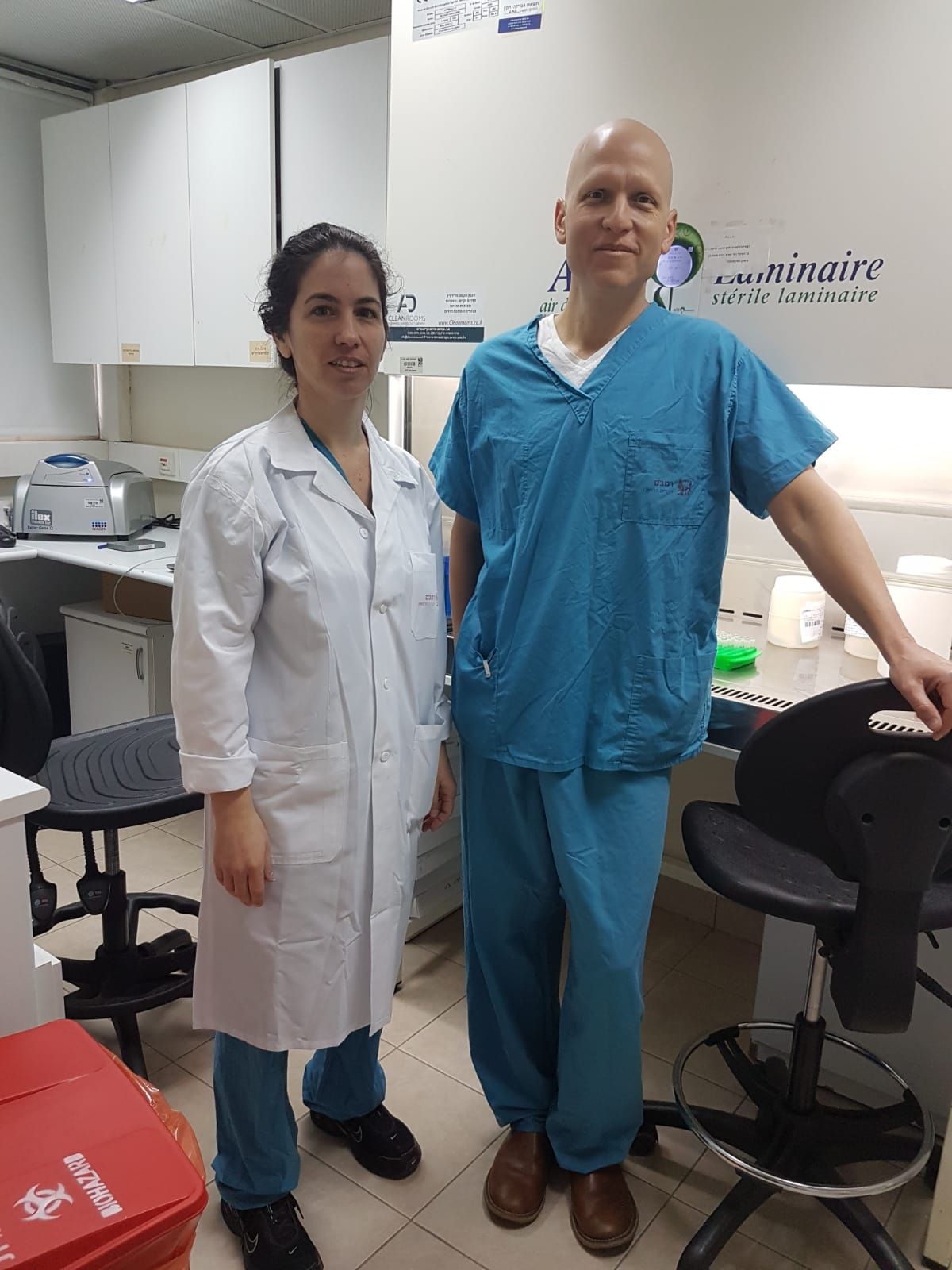
Director of the Rambam Virology Lab, Dr. Moran Szwarcwort-Cohen estimates that, “implementing pooling in the final stage of the PCR test will make it easier for us to shorten the entire process and significantly increase the test rate.”
President of the Technion Professor Uri Sivan said: "This experiment conducted by Technion and Rambam researchers is complex, and under normal circumstances would take months. This is a remarkable example of the mobilization of an outstanding team in a time of crisis. The initial experiment was completed in less than four days. This achievement emphasizes the importance of the close relationship between Technion and Rambam and between medicine and engineering. Technion researchers have been enlisted in the war against the Coronavirus and this is one of the many activities currently underway at Technion to combat the spread of the disease.”
General Director of Rambam Health Care Campus Prof. Michael Halberthal said, “This collaboration between Technion and Rambam, for the benefit of all humanity, is just one example of many joint projects between the two institutions. These collaborations are designed to harness the multidisciplinary capabilities of Technion researchers for the advancement of medicine.”
The experiment was led at Technion by Dr. Idan Yelin, together with Noga Aharony, Einat Tamar, and Dina Berenbaum in Prof. Kishony's laboratory together with Amir Argoetti from Professor Yael Mandel-Gutfreund's laboratory, both labs are in the Faculty of Biology. Dr. Esti Messer, head of the Technon Biological Safety Dept, was enlisted to help set up the dedicated laboratory and accompanied the entire experiment. Prof. Kishony holds the Marilyn and Henry Taub Chair in Life Sciences. The Rambam Health Care Campus team was led by Dr. Yuval Gefen and Dr. Moran Szwarcwort-Cohen, and Prof. Michael Halberthal, Rambam General Director and CEO.
Photos
L to r: Prof. Roy Kishony, Einat Tamar, Amir Argoetti, Noga Aharony, and Dr. Idan Yelin
Dr. Yuval Gefen and Dr. Moran Szwarcwort-Cohen
More pics at Facebook Israel Diplo
Credit: Technion Spokesperson's Office and Rambam Spokesperson's Office
- Details
- Written by Israel's Foreign Affairs Ministry
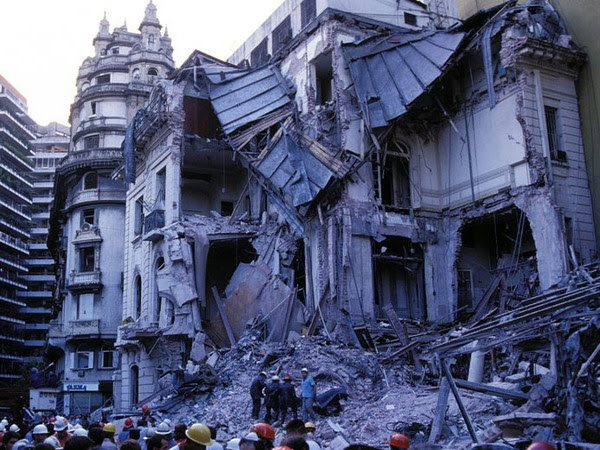
On March 17, 1992 , At 14.45hs a powerful bomb shattered the building of the Israel Embassy in Buenos Aires, taking the lives of 29 people. Hezbollah, calling itself a "party of God", claimed responsibility for the attack.
Bombing of the Israel Embassy in Buenos Aires, 1992
At 14.45 on March 17, 1992 a powerful bomb shattered the building of the Israel Embassy in Buenos Aires, taking the lives of 29 people, among them three Israeli embassy personnel, six local embassy employees, and scores of innocent Argentineans, including elderly residents of a nearby nursing home, and schoolchildren on a passing bus.
In one moment, the embassy and the nearby church were literally wiped off the map. Hezbollah, calling itself a "party of God", claimed responsibility for the attack.
The Argentine Supreme Court ordered an expert investigation of the attack which was carried out by the head of the national police bomb disposal and explosives unit. The result was conclusive: "The explosion took place outside the building when a car bomb struck the embassy building." Nonetheless, in 1996 the Argentine Supreme Court issued a statement saying it was impossible to determine who was responsible for this act of terror.
In May 1999, following a formal investigation, the Argentinian Supreme Court accused Hezbollah of the attack and issued an arrest warrant for Imad Mughnieh, commander of Hezbollah military-terrorist wing. An investigation carried out by Israel, whose findings were made public in 2003, showed that the highest levels of the Iranian regime were aware of Hezbollah's intention to carry out the attack and had in fact authorized Hezbollah to carry it out.
The 2006 report of the findings of the special team which investigated the terrorist attack which destroyed the Jewish Community Center building (AMIA) in Buenos Aires (18 July 1994) states that according to expert testimony, "the modus operandi of the attack was identical to the method employed two years previously in the attack on the Israeli embassy in Buenos Aires (an attack that the Argentinean Supreme Court found was the work of Islamic Jihad in its capacity as the military wing of Hezbollah)."
To date, no one has been brought to justice for these attacks. Israel remains convinced of Iranian responsibility for the bombing of the embassy in 1992 and of the Jewish community center AMIA.
On March 17, 2000, a memorial was inaugurated on the site of the former embassy
A marble monument, a replica of the column of the original embassy building, stands today in the Israeli Embassy in Buenos Aires, in memory of those who died who died on that fateful day in 1992, bearing the verse of the prophet Amos: "I will raise up its ruins and rebuild it as in the days of old."
Youtube Remembering the Terrorist Bombing of Israel's Embassy in Buenos Aires https://youtu.be/ldRRpLCqOpc
Credit :Israel's Foreign Affairs Ministry
Foto :Israel's Foreign Affairs Ministry
- Details
- Written by MFA

Throughout their long history, the yearning to return to the Land of Israel has been the focus of Jewish life. Independence Day is a celebration of the renewal of the Jewish state in the land where the Jewish people began to develop its distinctive religion and culture some 4,000 years ago.
Israel Independence Day is celebrated annually on the anniversary of the establishment of the State of Israel, according to the Hebrew calendar, on 5 Iyar.
The day preceding this celebration is devoted to the memory of those who gave their lives for the achievement of the country's independence and its continued existence.
This proximity is intended to remind people of the heavy price paid for independence. On this day the entire nation remembers its debt and expresses eternal gratitude to its sons and daughters who gave their lives for the achievement of the country's independence and its continued existence.
On May 14, 1948, the day the British Mandate expired, the new Jewish state - the State of Israel - was formally established in parts of what was known as the British Mandate for Palestine. With the establishment of the State of Israel in 1948, Jewish independence was restored after 2,000 years.
Independence Day is a celebration of the renewal of the Jewish state in the Land of Israel, the birthplace of the Jewish people. In this land, the Jewish people began to develop its distinctive religion and culture some 4,000 years ago, and here it has preserved an unbroken physical presence, for centuries as a sovereign state, at other times under foreign domination. Throughout their long history, the yearning to return to the land has been the focus of Jewish life. Theodor Herzl, the leader and founder of the Zionist movement, increased international recognition for the need of a Jewish state.
Since its establishment, Israel continues to be a homeland to the thousands who make their way to Israel annually. It is home to some of the holiest religious sites of the three major religions, all which enjoy the democratic rights delineated in the Declaration of the Establishment of the State of Israel.
Independence Day
Israel's 71st Independence Day celebrations will commence on Wednesday evening, May 8, immediately upon the conclusion of Memorial Day for the fallen soldiers and victims of terrorism, when the state flag is raised to full mast at a national ceremony on Mount Herzl, at which 12 torches are lit.
Independence Day is filled with festivities and celebrations including picnics, barbecues, family gatherings, and nature trips. Balconies, car windows, storefronts and more are liberally decorated with Israeli flags.
Population of Israel
On the eve of Independence Day 2019, the Central Bureau of Statistics announced that the population of Israel at the end of 2018 numbers 8,970,000 - more than ten times the population at the establishment of the state in 1948 (806,000). Jews and others today constitute 79.1% of the population, and Arabs 20.9%. About 75% of the Jewish population is comprised today of native-born Israelis, and more than half are at least second-generation Israelis.
Since the establishment of the state, over 3.2 million immigrants arrived in Israel. As a result, the allocation of Jews in Israel as a percentage of the total Jewish population in the world grew from 6% on the country’s first anniversary to 44% on the eve of the 71st.
In 1948, only Tel Aviv-Jaffa had more than 100,000 residents. Today there are 14 cities in Israel with a population of over 100,000, and 6 others with over 200,000 residents: Jerusalem, Tel Aviv-Jaffa, Haifa, Rishon Lezion, Ashdod and Petah Tikva.
Happy Independence Day!
- Details
- Written by Lithuania Embassy
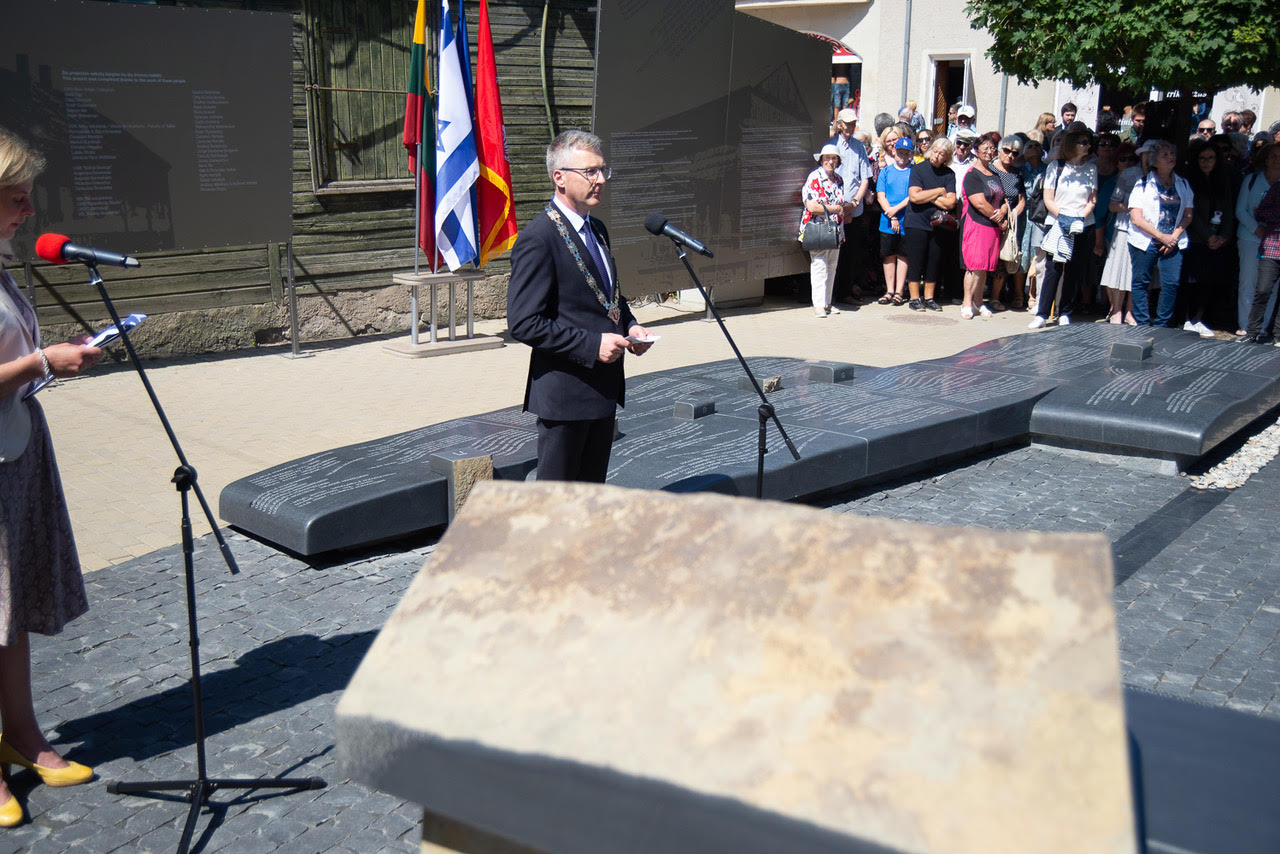
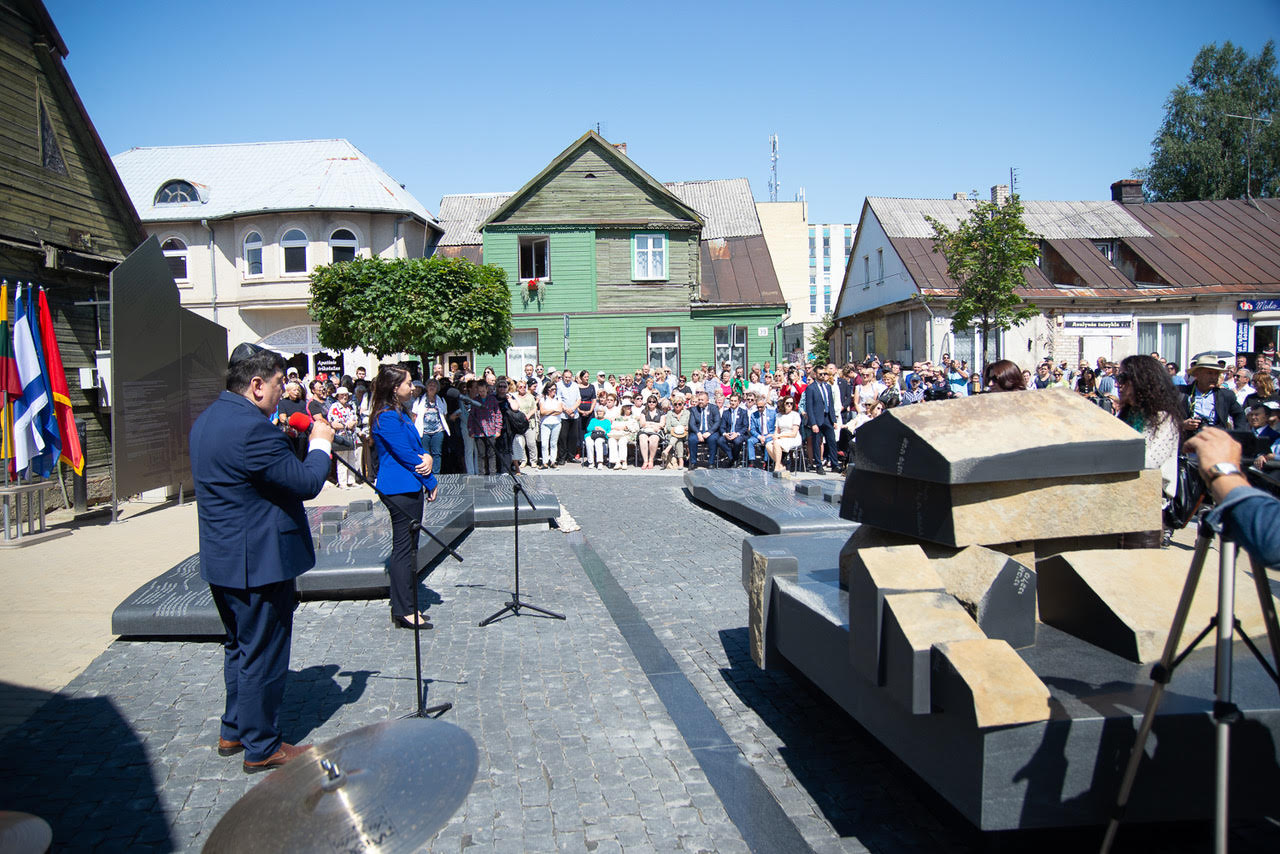
- Details
- Written by The Jewish Agency for Israel

Jewish Agency to Provide Emergency Assistance for Businesses Affected by Kite Terrorism
JERUSALEM, ISRAEL - The Jewish Agency for Israel will grant loans of up to 100,000 shekels to businesses affected by arson attacks and rocket fire originating in the Gaza Strip.
In recent months, terrorists have launched hundreds of kites, balloons and other flying objects set aflame over the Gaza border in order to wreak havoc on the Israeli side. According to Israel Fire and Rescue Services, some 300 fires have erupted in the area surrounding the Gaza Strip since border tensions rose in the spring of this year, affecting more than 60,000 acres. This has caused damage to farms in the area, and also to small businesses in the tourist industry including guest houses, restaurants and pubs.
The loans will help small and medium sized businesses near the Gaza border that have suffered under the recent kite arson attacks and rockets launched by Gaza terrorists in recent months. The loans will be granted with expedited processing and preferential terms.
The assistance will be provided through The Jewish Agency's Small Business Loan Fund program thanks to a special donation from the Ness Fund, which is supported by the Jewish Community Foundation of Greater MetroWest New Jersey and the Greater Miami Jewish Federation.
In response, The Jewish Agency's Small Business Loan Fund program activated the Ness Fund for the Development of the Negev. Jewish Agency assistance will focus on business in the fields of commerce, tourism and services. Agriculture businesses are handled by the Israeli government, as they are defined as victims of hostilities. As part of the emergency plan, loans will be granted to businesses located in the regional councils Hof Ashkelon, Sedot Negev, Shaar Hanegev, Eshkol and Merhavim, as well as the cities of Sderot and Netivot.
The Ness Fund for the Development of the Negev, which regularly supports dozens of businesses in Israel’s south, is one of eight funds operated by the Jewish Agency's Small Business Loan Funds program. The Jewish Agency funds are made possible by the generous support of Jewish communities, and provide loans under advantageous conditions to entrepreneurs who are starting a new business or expanding an existing business in Israel’s social and geographic periphery. The loans are provided by Bank Otsar Hahayal with The Jewish Agency serving as a partial guarantor for the businesses that would otherwise find it difficult to obtain a loan or to provide the necessary collateral.
Amir Sznajderman, Director of the Small Business Loan Funds program at the Jewish Agency, noted that "The Jewish Agency's funds provide quick assistance under preferential terms for businesses, both in routine and emergency situations." Since the program started, The Jewish Agency’s Loan Funds program has helped 1,900 businesses and entrepreneurs, loaning more than 320 million shekels and creating about 9,000 new jobs. "
The interest charged on the loans is prime + 1.5% with a grace period of 6 months followed by 5 years of repayment of principal and interest. The Jewish Agency will provide a residual guarantee of up to 70% of the loan and the borrowers will provide one guarantor for the loan.
For more information about the loan program, please contact Tamar Dai, representative of The Jewish Agency's Loan Funds program in the south: This email address is being protected from spambots. You need JavaScript enabled to view it.









